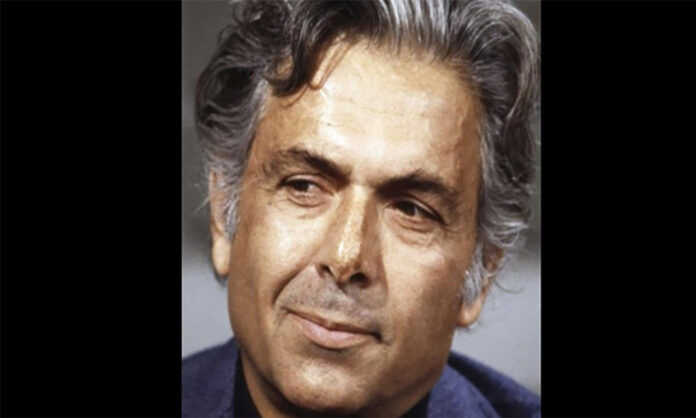
In the quiet embrace of time’s flow, the world bids farewell to a cinematic maestro whose impact will be remembered for generations. Ebrahim Golestan, the revered Iranian filmmaker and wordsmith, has peacefully passed away in the United Kingdom at the venerable age of 100. His daughter Lili, in a poignant and concise Instagram post, conveyed the solemn words, “Father is gone. Good-bye.”
Born in 1922 in Abadan, Iran, Golestan grew up in a period of great change, as his country began to explore the world beyond its borders. It was a time of political and cultural excitement, giving rise to a generation of influential figures who would shape Iran’s 20th-century history.
As a young man, Golestan closely followed the movement to nationalise Iran’s oil industry in the early 1950s. He initially joined the communist Tudeh Party but soon became disheartened and turned his focus to making documentaries and writing creatively.
The significant political events of 1953, when a British and US-backed coup toppled Prime Minister Mohammad Mossadeq’s anti-colonial government, likely played a role in his change of direction. In the early 1960s, Golestan’s talent as a filmmaker began to receive international recognition. His visually striking documentary, “A Fire”, which depicted a massive oil well fire in southwestern Iran, earned two awards at the Venice Film Festival.
However, it was his groundbreaking film, “The Brick and the Mirror” (1965), that left an enduring mark on cinema. This gripping drama follows a taxi driver’s night-long journey with an abandoned baby, marking the beginning of the Iranian New Wave and inspiring a new generation of filmmakers.In his many short stories and longer writings, Golestan paid careful attention to crafting narratives with rhythmic and polished language. His work bore the influence of classical Persian poetry and prose, reflecting his deep literary knowledge.
During the politically charged 1960s, Golestan supported emerging Iranian artists who were critical of the monarchy under Mohammad Reza Pahlavi. However, he chose to steer clear of direct political involvement. During this time, Golestan’s life intersected with that of the celebrated poet Forough Farrokhzad, a prominent voice for Iranian women. Many Iranian critics believe their connection had a significant impact on Farrokhzad’s literary output.
In 1975, four years before the Islamic Revolution, Golestan decided to relocate to England, settling in Bolney, West Sussex. Although he never returned to Iran for over five decades, he remained in contact with Iranian cultural figures who drew inspiration from his work.







